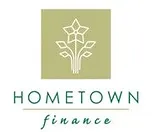A Beginner’s Guide to Low-Income Loan: Answers to the FAQs
While some lenders require a minimum income level from borrowers, others are willing to look at other factors. However, even if you qualify for a personal loan with a low income, carefully consider whether it makes sense for you to take on debt. You may have other choices, such as cheaper financing options, when borrowing money.
Low-income loans may be an option that you may want to consider. This blog post will shed light on the FAQs of this type of loan to help you make an informed decision on if taking out this loan is right for you.
What are low-income loans?
Low-income loans are exactly as the name implies. It is a loan for low-income earners. Many people get into debt because of unexpected circumstances and then find themselves financially distressed and needing fast money. This is where low-income loans can help. These loans are specifically designed to help borrowers who otherwise wouldn’t qualify for a traditional loan.
How do low-income loans work?
Low-income loans are similar to traditional loans in that you have to apply for them and have some sort of collateral or asset used as a guarantee for the loan. Low-income loans are a bit different because they are self-paced, and you don’t have to worry about high-interest rates. This is because the lender is more willing to work with you and doesn’t want to see you in a financial bind.
What are the requirements for a low-income loan?
There are usually a few requirements to get a low-income loan. The main one is that you are a low-income earner. This means that you have a steady paycheck, but it just isn’t enough to cover all your expenses. So, you may have a regular job, but it just doesn’t pay enough to make ends meet.
Another requirement is that you are employed, and you have a steady source of income. Most low-income loans will want to see your last three pay stubs to verify that you have been working for at least six months. You may also have to prove that you are capable of paying back the loan, so you may need to provide pay stubs for the last few months as well as your tax returns for the last year.
Loan Alternatives for Low-Income Borrowers
1 – Government assistance
As a low-income borrower, you may be able to qualify for help from the government. These government programs provide assistance to low-income individuals and families to help with emergency payment needs.
2 – Credit union loan
If you are unable to qualify for most traditional loans, you may want to try your local credit union. Credit unions are member-owned and cater to low-income earners and those with bad credit. They can offer you the loan that you need and are not bound to the same strict requirements as a regular bank.
3 – Pawnshop loans
Pawnshop loans are a good option as they are typically more flexible with the terms of the loan. They may be more willing to give you cash than a regular bank. A lot of people go to pawn shops when they need fast cash, so they can typically offer you a decent loan if you have something of value.
Conclusion
While traditional loans can be out of reach for some low-income earners, there are a few options that you can explore if you find yourself in need of a loan. Do your research and find the option that is a good fit for your situation.
Working with the right lender is the key to getting a good deal for your low-income loan. Hometown Finance has served the surrounding area since 2001. We believe in the value of strong relationships – especially in times of need – and approach lending through an understanding lens. Our goal is to provide ,small personal loans in Murfreesboro, TN, to those who need help. Please call to inquire today.
